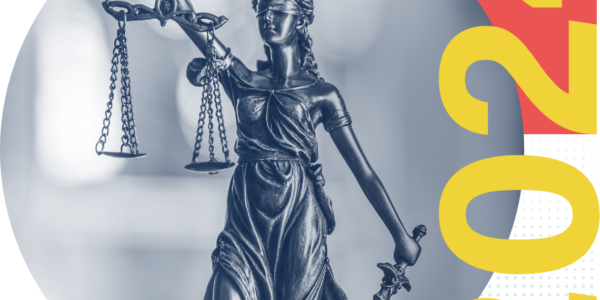
Taking a layered approach to sanctions compliance
Learn what a layered approach to sanctions compliance looks like in practice, with a discussion on the ever-evolving sanctions landscape from our expert panel.
Watch on demandLike most countries, the UK issues a range of sanctions against individuals, groups, and other states to achieve certain economic or diplomatic outcomes. Sanctions form a major element of the UK’s foreign policy. As a significant political and economic power, the UK often plays a prominent role in shaping the international sanctions landscape.
This guide will outline:
The UK government can impose several kinds of sanctions, with responsibility for implementation and enforcement split across government departments depending on the type. These include:
The UK’s sanctions framework consists of various pieces of legislation and frequently updated lists and regulations. The key laws involved are:
Like all members of the United Nations (UN), the UK implements sanctions issued by the intergovernmental body, like all members of the intergovernmental organization. Details of these can be found on the UN Security Council (UNSC) Consolidated List. The UK government also maintains a unilateral sanctions list, known as the UK Sanctions List, which contains details of all sanctions applied under the Sanctions Act. OFSI oversees the Consolidated List of Asset Freeze Targets, which lists all entities subject to financial sanctions.
Officially, the UK’s sanctions framework consists of several distinct sanctions ‘regimes’. These can either be geographic, targeting specific countries, or thematic, targeting individuals and entities for offenses of a particular nature. For example, as of November 2024, the UK currently operates geographic sanctions regimes against Russia, Belarus, and Iran, and thematic regimes relating to cyber activity, human rights violations, and counter-terrorism. All of these are included on the UK Sanctions List and administered under the Sanctions Act.
The UK often acts in parallel with other nations, particularly its geopolitical allies, when issuing sanctions. In 2024, for example, it issued numerous coordinated sanctions against Russia with its partners in the G7 group. The UK’s human rights-related sanctions reflect similar “Magnitsky-style” regimes (named after Russian lawyer Sergei Magnitsky, who died from mistreatment in prison after revealing tax fraud by officials) implemented by other Western countries. Introduced in 2012, the United States’ original Magnitsky Act enabled the US to target the individuals responsible for Magnitsky’s death, while the subsequent Global Magnitsky Act (2016) allowed it to impose sanctions against human rights abusers anywhere in the world.
However, firms operating across multiple jurisdictions should remain aware of the details of all relevant sanctions regimes rather than assuming compliance with one country’s sanctions framework equates to compliance with another’s.
The body responsible for enforcing sanctions depends on the nature of the sanctions, as specified above. However, under the Sanctions Act, breaches can result in severe civil or criminal penalties. Monetary penalties for breaches of financial sanctions can reach up to whichever is higher out of £1m or, where the breach can be linked to specific funds, 50 percent of the value of those funds. Breaches can also result in imprisonment for up to ten years in the case of trade sanctions or seven years for financial sanctions. Embargoed goods being traded without the necessary license will be seized.
The Financial Conduct Authority (FCA), the UK’s main financial regulator, can fine firms up to 40 percent of their income if it identifies weaknesses in their sanctions compliance procedures. In 2024, the FCA issued multi-million-pound penalties to high-profile FIs.
In 2022, Strict Liability was introduced for civil monetary penalties in the UK. This means penalties can be issued in cases where OTSI or OFSI believe, on the balance of probabilities, that a breach has occurred without having to establish whether it was deliberate. Given that firms can effectively be punished for inadvertent sanctions breaches, they should proactively take steps to ensure compliance.

Learn what a layered approach to sanctions compliance looks like in practice, with a discussion on the ever-evolving sanctions landscape from our expert panel.
Watch on demandThe complexity of the financial landscape and the sanctions environment mean that sanctions compliance is rarely straightforward for firms. These are some of the most common compliance challenges UK businesses can face:
UK businesses must include sanctions considerations in their anti-money laundering and countering the financing of terrorism (AML/CFT) compliance programs, ensuring they can screen against the UK Sanctions List and the UNSC Consolidated List. Any firm’s sanctions compliance program should include these steps:
Sanctions compliance depends on quality data across all stages of the customer lifecycle, from onboarding to payment screening. Here are three ways our proprietary data goes above and beyond to prime firms for optimized regulatory compliance:
Unlock more time by automating your sanctions screening. Book a free demo with one of our experts and see our easy-to-use UI and seamless integration.
Get a demoOriginally published 21 June 2014, updated 21 November 2024
Disclaimer: This is for general information only. The information presented does not constitute legal advice. ComplyAdvantage accepts no responsibility for any information contained herein and disclaims and excludes any liability in respect of the contents or for action taken based on this information.
Copyright © 2025 IVXS UK Limited (trading as ComplyAdvantage).